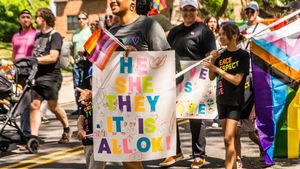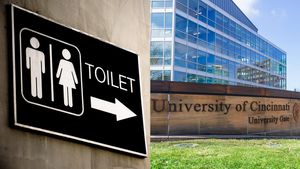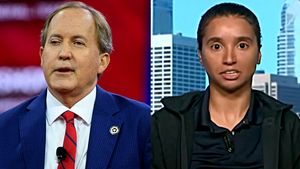The LGBTQ+ Victory Institute’s latest “Out for America” report shows a record number of out elected officials in the U.S., including a huge jump in nonbinary representation.
As of May of this year, the nation had 1,303 out LGBTQ+ elected officials, an increase of 10 percent from a year earlier, when Victory Institute counted 1,185.
Nonbinary representation increased by 69.6 percent, with 52 officials serving nationwide who identify as nonbinary, trans nonbinary, genderqueer/nonbinary, genderqueer, or gender non-conforming. Thirty-three states and the District of Columbia have nonbinary elected officials.
Transgender representation, however, decreased for the first time since tracking began in 2017. The number of trans elected officials decreased by 6 percent year over year, compared to a 15.6 percent increase in 2023, 9.8 percent in 2022, 73.1 percent in 2021, and 30 percent in 2020. There are currently no known intersex elected officials.
There are now 235 LGBTQ+ state legislators in the U.S., the most ever, and an increase of 4 percent since 2023. Vermont has the most out state legislators in the country with 12, while Louisiana, West Virginia, and Idaho have none. Louisiana is the only state that has never elected an out LGBTQ+ state lawmaker.
LGBTQ+ elected officials of color increased by 17 percent year over year, while there was a 9.3 percent increase among their white counterparts.
Out elected officials increasingly identified as pansexual, queer, or bisexual, with 28.6 percent, 23.1 percent, and 20.7 percent increases, respectively.
In spite of the increases in representation, many more LGBTQ+ people need to be elected to office to reflect their proportion of the population. The record-setting 1,303 amounts to just 0.25 percent of all elected officials, meaning at least 38,193 more LGBTQ+ people must be elected to achieve equitable representation.
“Despite the historic news of having an LGBTQ+ elected official in every state and D.C., we must remember just how important this year is for our candidates, elected officials, and our democracy,” said a statement from Victory Institute President and CEO Annise Parker. “We know we still have a long way to go. The battles over bodily freedom and autonomy happening in school boards, state capitols, and even our federal government demand all of us to work even harder to get more LGBTQ+ people elected nationwide. What happens through November and beyond is critical to building an America that truly represents all of us, and a call to many more in our community to run for elected office and help shape our future.”































































































































